World Cup: How Wales uses sport to sell itself globally
- Published
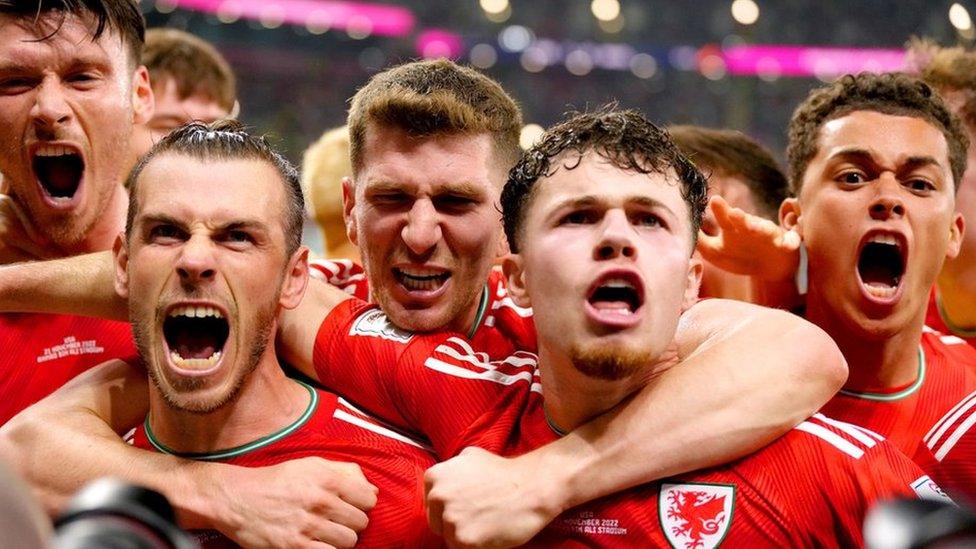
Wales celebrate Gareth Bale's equaliser against the USA in their opening game at the World Cup
Wales has just played the world's richest nation on the planet's biggest sporting stage.
In terms of international profile, it does not get much bigger than taking on the USA in the football World Cup.
It also marks the culmination of more than 20 years of using sport to sell Wales around the globe.
It has been a remarkable period for hosting events, with Wales' sporting stars taking part in competitions internationally.
Cardiff has seen the Rugby World Cup in 1999, FA Cup finals at what was then the Millennium Stadium in the 2000s, the Ashes in 2009 at Sophia Gardens, the first event of the 2012 Olympics as GB played New Zealand in women's football, as well as the Champions League final in 2017.
There was also the Ryder Cup in Newport in 2010, and who can forget Wales' spectacular run to the Euros semi-finals in France in 2016, and Geraint Thomas's Tour de France triumph in 2018.
Carwyn Jones' time as first minister coincided with much of it, and he believes Wales' involvement in the World Cup in Qatar is the end of a journey which began with the 1999 opening of the Millennium Stadium - now the Principality Stadium.
He believes the country's involvement in sport was helped by the fact that both he and his predecessor, Rhodri Morgan, were "big sports anoraks".
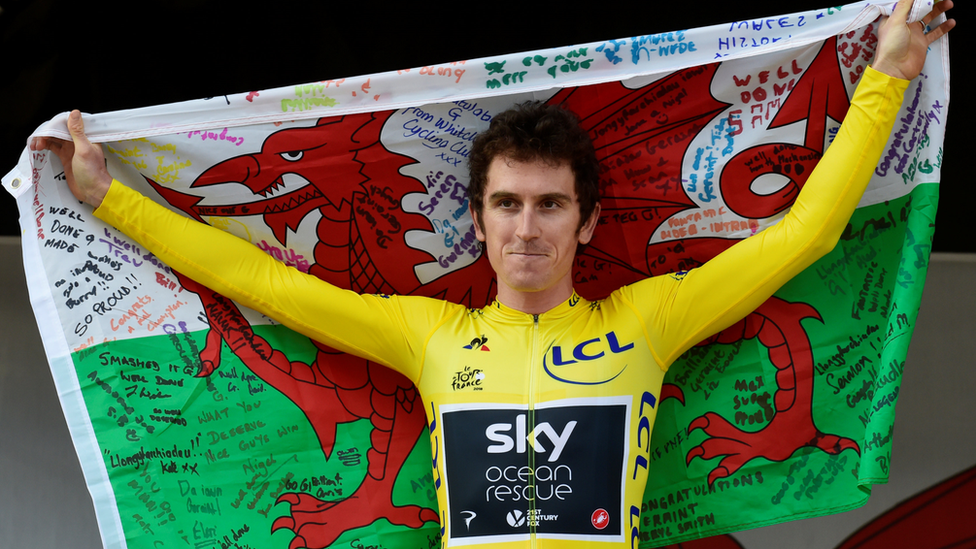
Geraint Thomas' Tour de France win in 2018 has been one of the highlights of Wales' place on the sporting stage
He said: "It was an understanding, we both knew that being able to have a strong presence on the international sporting stage was the pathway to creating more interest in Wales, and therefore boosting the Welsh economy further down the line.
"There is no question that it has helped boost Wales' image."
Mr Jones is happy to admit that the involvement in the 2016 Euros alone created a greater profile for the country than any politician could have done.
But has it worked in creating the kind of economic improvements many claimed would benefit the country as a result?
It has been a hotly debated question over the years, particularly when public funds were used to promote and bring showpiece events to Wales, but it is virtually impossible to put an accurate figure on how much cash is generated in both the short and long term from such events.
'Sense of confidence'
When Wales was successful in attracting foreign-owned companies to invest here, it was often used as a reason to take part.
But the economic picture is very different now, and inward investment is not the focus it once was.
In fact, Mr Jones believes one of the biggest benefits from major sporting events is not all about foreign investment or tourism, but about the people of Wales.
"It helps create a sense of confidence among our own people," he said.
"We have historically not done very well in terms of people starting up businesses and growing them, a lack of confidence perhaps, people thinking 'I cannot go much further'.
"How many times have we said that sometimes in Wales there is a limit to what we can do?
"Our sports teams, and the fact that we have hosted big events successfully, shows we can be up there with the best in the world.
"It has given us a sense of confidence we never had before, and that then projects itself around the world."
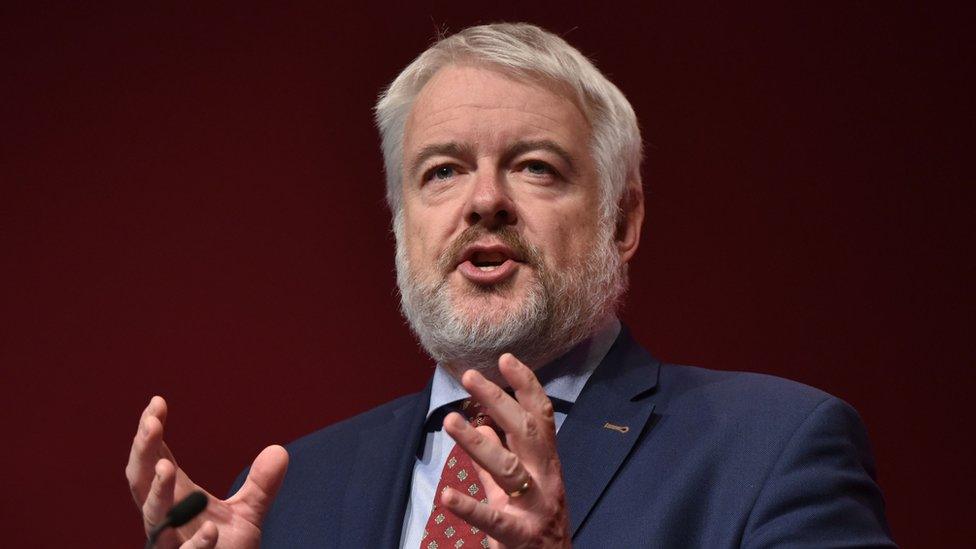
Carwyn Jones, first minister from 2009 to 2018, says there is no question a strong international sporting presence has boosted Wales' image
Calvin Jones, an economist at Cardiff Business School, has studied the economic impact of hosting or taking part in large sporting events.
Initially sceptical about the benefits, he has softened his stance, now saying that in financial terms you cannot put a price on it, but agrees that there are benefits culturally, and in terms of the feelgood factor.
'Outpouring of love'
He cited the buyout of Wrexham AFC by actors Ryan Reynolds and Rob McElhenney as an example.
"If you think about what has happened in Wrexham with the takeover, and the outpouring of love between two Hollywood stars and a town, it's an unalloyed good news story, it makes people feel better about Wrexham and it's on TV's around the world, that I think has benefits that are completely distinct from an economic impact.
"You can say the same about the way that sports teams, and in particular the football team, and I would include Paralympics and others in this, have come to embody a sense of confident and inclusive Welshness.
He said the way the narrative with the fans' support group the Red Wall has developed is that football means something, and it's supposed to say something about Wales.
"That is all really good, as long as you don't expect much from it beyond the generic 'it's all good stuff' because the monetisation of profile is incredibly hard to trace - that is not to say there are not any benefits.
"If we think what Cardiff would look like without the [Principality] Stadium, without all those events, if Cardiff was not a visitor city it would be completely different."
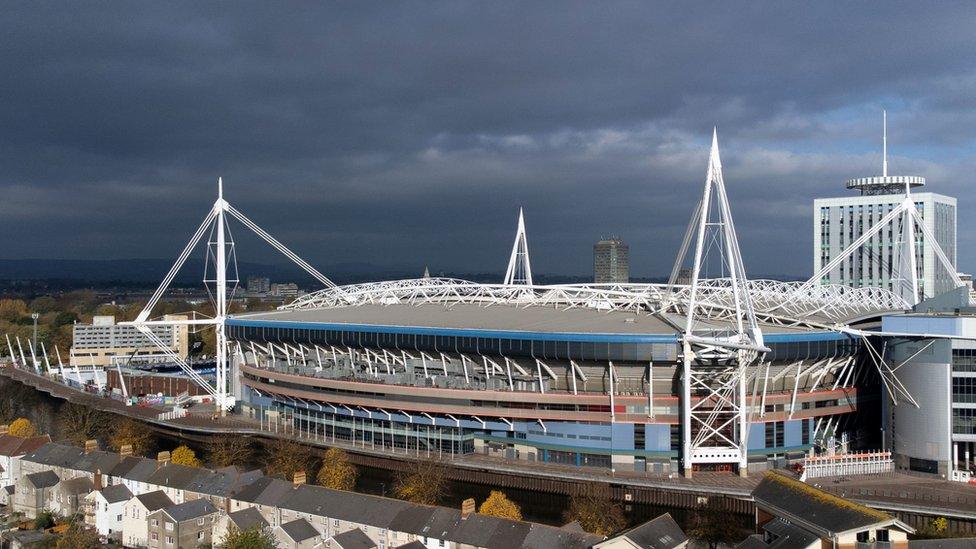
Calvin Jones says the Principality Stadium has had a huge impact, with sporting and music events bringing cultural and economic benefits
Calvin Jones said he was very cynical throughout most of the 90s about sporting events, but at the same time could see the cultural benefits.
"Looking back over the past 15 years, if we had not had Madonna at the stadium, if we had not had the Manics [Street Preachers] on New Year's Eve, and all those wonderful things that have happened off the back of sporting success, if we had not had the [rugby] Grand Slams, and the football we now have, then Wales would have been an unhappier place, if only for that, it has been worth it," he added.
There are times when it is difficult to imagine Wales without the profile of sport, such has been its impact over the past 20 years.
Wales' image globally has been forged through sport, and the World Cup in Qatar is the latest striking example yet of how successful it can be.

WALES IN THE WORLD CUP: Explore the history, celebrate the legends, and keep up with all the action
BUILDING THE RED WALL: Cerys Matthews meets the characters behind the Red Wall

- Attribution
- Published21 November 2022
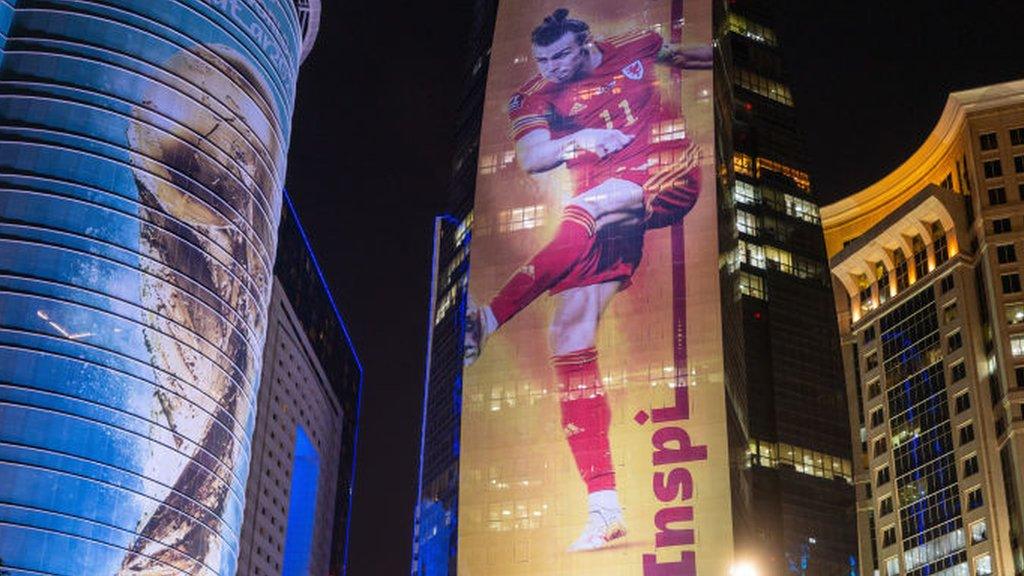
- Attribution
- Published18 November 2022
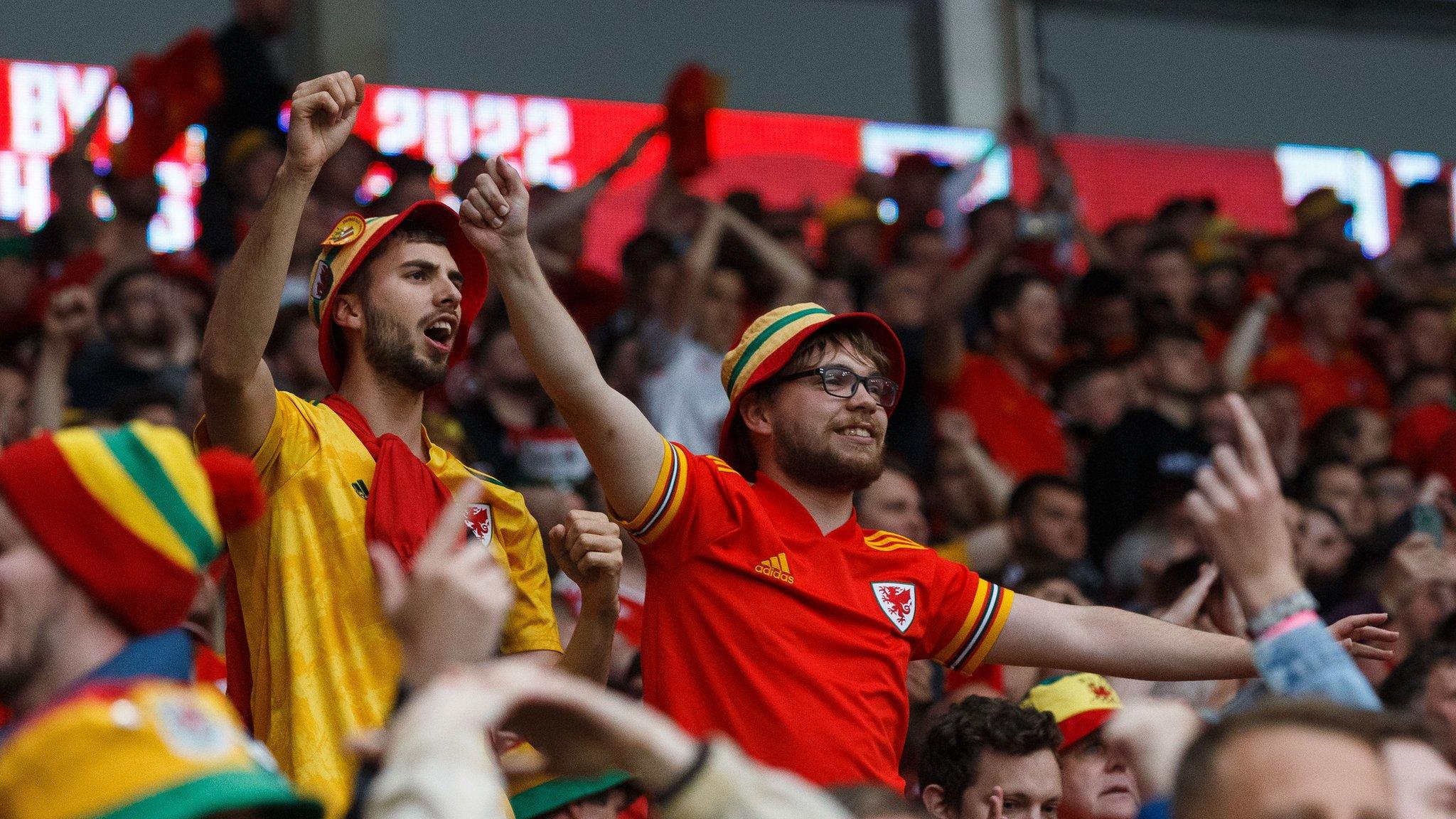
- Published17 April 2019
